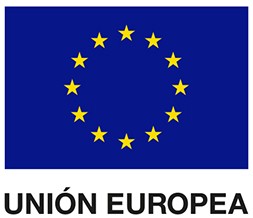Why is it legal?
___
Because European and Spanish legislation covers attendance and voting through telematic means to corporate meetings, provided that real-time reception is ensured and through secure means.
The resolution of December 19, 2012 of the General Directorate of Registries and Notaries (Dirección General de los Registros y del Notariado), allows the delegation of vote through secure telematic means such as Councilbox since they leave record on computer support that can be subject to proof.
The messages managed through the Councilbox constitute reliable communications, since they arrive in a proven way to their destination and the interested party can take notice of the message without the concurrence of impediments that hinder it.
Due to the notices sent and the readings, downloads and responses tickets generated and saved in the Councilbox system, it is not possible to object not to have sent/received the communication.
The functionalities that the communications issued by Councilbox have at a technical level, allow the generation of sufficient evidence, susceptible to be provided in court and in line with the jurisprudence and applicable law, will have probative value.
For the supporting evidence not to be considered unilateral, it is necessary that they are generated by trusted third parties that have a neutral position and that are not related to the parties, so that they generate and safeguard the electronic evidence that undoubtedly demonstrates that the communications have taken place. For this purpose, Councilbox guarantees this end by having a trustworthy service provider of recognized prestige.
Likewise, article 3.4 of the Electronic Signature Law establishes a principle of equivalence of legal value between the electronic signature and the handwritten signature.
Applicable legislation
 The Directive 2007/36/EC of the European Parliament and of the Council of July 11, 2007 authorizes the holding of meetings of shareholders remotely provided that the following is guaranteed: the transmission of the meeting in real time, that a bidirectional communication takes place so that shareholders can address the board from a distant place, electronic vote to avoid appointing a representative who is physically on the Board and that is a means where the verification of the identity of the shareholders and the security of electronic communications takes place.
The Directive 2007/36/EC of the European Parliament and of the Council of July 11, 2007 authorizes the holding of meetings of shareholders remotely provided that the following is guaranteed: the transmission of the meeting in real time, that a bidirectional communication takes place so that shareholders can address the board from a distant place, electronic vote to avoid appointing a representative who is physically on the Board and that is a means where the verification of the identity of the shareholders and the security of electronic communications takes place.

22 States like; Delaware, Minnesota, Ohio, Pennsylvania, Missouri and Texas allow the holding of shareholders meetings entirely remotely. Others, such as California or Maryland, require irrevocable consent from the member to attend remotely only all meetings.
18 States like; Georgia, Massachusetts, New Jersey, New York or Wisconsin exclude remote or hybrid shareholders’ meetings for corporations incorporated.
11 States allow the holding of shareholders’ meetings, provided that they have the option to attend in person (hybrid)

South Africa
Board meetings are allowed in South Africa provided that means of communication are used to ensure the simultaneous communication of all participants without the need for an intermediary. Remote assistance is equated with physical assistance.
Australia
Remote council meetings are allowed as long as all board members agree, and simultaneous communication between them is guaranteed.


